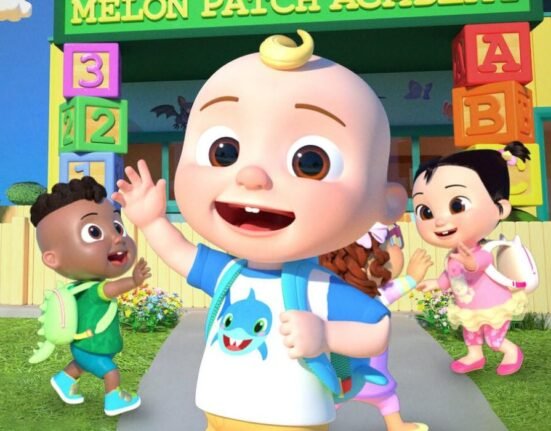Do you have any siblings or are you an only child? Have you ever wished you had siblings or didn’t have them? There probably were days when the grass seemed greener on the other side. Despite all the challenges and conflicts, siblings shape an individual’s personality a lot. After all, you live with them almost your entire life. Having a sibling is like having an inbuilt friend always waiting at home. This depiction of sibling relationships, though admirable, is unfortunately extremely idealistic.
There are many existing cases of siblings who hate each other. Siblings who ignore each other as if the other doesn’t exist. Even siblings who consider each other enemies and brutally compete constantly trying to pull down each other. Badri Khetro, a 31-year-old, was a citizen of Andhra Pradesh. Just a few days after the joyous occasion of becoming a father, his life was cut short by his own siblings. His own flesh and blood, his two older siblings, committed an unforgivable act, ending his life ruthlessly in a property dispute (G, 2023). This is not the only time where one’s own flesh and blood were murdered over conflict. Many similar cases have been observed in every corner of the world.
However, we cannot deny that, more often than not, most individuals love their siblings. Having a sibling means that you never have to be alone. Coming home after a long day outside with coworkers who you can’t trust? Don’t worry, your sibling is there to here to soothe your weary heart. Siblings serve as lifelong companions who learn from each other and battle the obstacles thrown by life together.
Have you ever sent the youngest sibling to ask your parents to order pizza for dinner? Or have you ever forced your older sibling to cover your project file or help you talk to a teacher in school? Racing back to the house, eating the last cookie, or waking the other up because you can’t sleep. Such memories fill our minds when we think of our siblings. These shared experiences create a deep sense of belonging and continuity. At the end of the day, when nobody else is there, we find comfort in knowing that our sibling is always there for us.
Factors According To Psychologists That Effect Sibling Relationships:
Every day we see many families around us where, despite their differences, their siblings are their best friends. Why is it that some siblings become lifelong companions, while some act like strangers? Here are the factors that affect sibling relationships:

Family Size:
It can sound surreal to many, but there are large families with even seven or more children. The experiences of children with one or two siblings are completely different from those with five or more siblings. More siblings mean more experiences and more conflicts or bonds. Often in large families, all children may not be able to form a close bond with all of their siblings, which can cause frustration. However, it also serves as an opportunity to form enriching bonds. Children living in smaller families may not have similar experiences.
Relationship With Parents:
A lot of sibling relationships depend on the family dynamics. Parent-children relationships serve as the most important predictor of sibling relationships. Parents who positively cater to the needs of their children and prioritise spending equal one-on-one time with all their children develop healthy, functioning adults. If you are convinced that your parents favour your sibling more than you, then willingly or unwillingly poison against your own flesh and blood will start welling up in your chest.
Constructive and unbiased parenting has been linked to a healthy sibling relationship. Let’s reverse this situation. Your parents try their best to ensure that you feel as loved and appreciated as your siblings. Will you still harbour hostility against your family? No, right? Your siblings will become friends instead of enemies who are competing for resources. A study revealed that children with affectionate and loving fathers are more likely to have healthy sibling relationships. However, it has also been proved that children who have regular clashes with their mothers are more likely to hold the same hostility towards their siblings (Volling & Belsky, 1992).
Birth Order, Gender and Age spacing:
We have all seen those gender reveal videos on Instagram and TikTok. Yes, you probably already got it. The videos where the fathers react aggressively and get upset as soon as the colour pink is revealed. Many people try to cover it up as gender disappointment, however, it is not impossible to think that this disappointment would seep into the treatment towards that child.
Even poor families that cannot afford to take care of even one child keep trying to have a son in the belief that he will take care of them in the future. This gender bias significantly affects not just sibling relationships, but the relationship with the entire family. Birth order and age spacing also play a key role in determining how the initial relationship with their siblings would be. Younger siblings form a stronger bond with the older one when the age gap is of 4 years or more.
Read More: Birth Order Theory: How Birth Order Affects Your Personality
However, same-gender siblings who are closer in age have warmer and closer relationships as adults. Ironically, when same-gender siblings are close in age, conflict and competition increases and really depend on how the parents handle this conflict. Scientifically speaking, children below the age of two do not understand the implications of having a sibling.
This causes intense sibling rivalry between the two, well in such cases, mostly the older one as the other is still an infant. Surprisingly, intense rivalry during this stage actually leads to strong attachment and a close relationship as adults. Young children spend a lot of time together, slowly and gradually learning to accept each other over time.
Temperament, Personality and Sibling Interaction:
Temperament and sibling interaction are under one dimension, but are they not from completely different domains? A good observation, let’s discuss why. Temperament is what we commonly call a person’s nature or, in more technical terms, an individual’s emotional disposition tendencies and intensity of reactions.
This is usually biologically determined, unlike sibling interaction, which depends on social factors. The nature of the children’s temperaments will shape the course of their interactions. Experiencing moments of success and failure together really influences how siblings perceive their relationships. Supporting one another during moments of conflict is often seen as the pivotal moment in sibling relationships.
How Parenting Styles Affect Sibling Relationships:
Is my relationship with my sibling completely my fault or can the torch of blame be passed to my parents? A question all siblings have asked themselves their entire lives. We are already aware of the fact that parents shape sibling dynamics. Parenting has never been an undemanding job and, knowingly or unknowingly, every parent has taken actions that were probably not the best for their children’s well-being. A widely known psychologist, Diana Baumrind (1971) gave four types of parenting styles to explain most parent-child relationships:
Read More: Different Parenting Styles: How it Affects the Development of the Child
1. Authoritarian Parenting:
Remember that friend who looked like a kicked puppy whenever an outing was being planned? Or were you that kid? Well, this question probably gave you a good idea about who authoritative parents are. They demand extreme control and obedience from their children. They are more likely to resort to physical punishment and verbal insults to make sure their child obeys them.

The children are raised by seemingly aloof parents with love and warmth being a rare gift. Authoritarian parents are more likely than not to be involved in sibling conflict. However, due to the controlling and rigid nature of this approach, the over-involvement of the parents worsens the bond between siblings, often leading to toxic rivalry.
Read More: The Psychology Behind Authoritarianism
2. Permissive-Uninvolved Parenting:
Uninvolved, also called neglectful parents, as the name suggests, do not bother themselves with their children’s lives. They don’t really set any limits or rules, unlike authoritarian, however, they do not display any warmth or affection towards their children either. It is marked by perceived indifference towards their offspring or sometimes towards one of their children.
News channels are flooded with news of child neglect every day in its most extreme form of outright rejection of their own children. This type of parenting usually has a negative impact on sibling relationships. However, sometimes the older one may step in as a parental figure for the younger ones. This strengthens sibling relationships from the perspective of the younger siblings. Unfortunately, the same can not always be said about the oldest one, even when they step in to take responsibility.
3. Permissive-Indulgent Parenting:
These parents are the polar opposite of authoritarian parents with completely different principles. Have you ever had a classmate who felt as if they had never heard a no in their life? Or maybe a child kicking up the person next to them in public transport with the parent’s response being a laugh. Indulgent parents are extremely loving and affectionate, except they are scared to set limits. They do not put in any effort towards discipline or behaviour regulation, letting their child do whatever they want, even if it could harm them. They avoid making demands related to performance and misbehaviour rarely has consequences. Such parenting surprisingly is linked to sibling conflict as none of their children want to take responsibility or act maturely.
4. Authoritative Parenting:
This parenting style takes the positive charms from the aforementioned parenting styles to make the ideal parenting guidebook. Authoritative parents allow their children to explore under certain boundaries. They are involved in their children’s lives but allow them autonomy and freedom to make their own choices. They discipline them with encouragement and constructive criticism, raising confident and resilient children.
Authoritative parent don’t hesitate to shower their children with affection but also know when being strict is necessary. Such parenting allows siblings to engage in conflicts but involve themselves only to a certain degree, allowing the children to bond with themselves and feel the achievement of overcoming that conflict. However, being an authoritative parent is easier said than done and requires a lot of patience, effort and preservation (Liu, C., & Rahman, M. N. A.,2022).
How do Siblings Impact Our Psychological Well-being?
If you have a sibling, try reflecting on the first few thoughts that come to your mind when thinking about your sibling. A wave of bittersweet memories hit us like a wave as soon as we think about them. Perhaps they are away right now to work or in another country or maybe sitting right next to you giggling watching reels. So how have they impacted us and how have we affected them? Well, while it is a subjective experience different for everyone, psychology has a general answer to explain how sibling dynamics work:
1. Adjustment or Aggression?
The popular belief is that having siblings helps children adjust well to a new environment. It is not necessarily untrue. In fact, children with good sibling relationships with appropriate parental support have an easier time facing transitions. However, studies have revealed that children with unresolved hostility towards their siblings, combined with rejecting parenting, have increased chances of engaging in aggressive behaviour. It was also revealed that children with sibling conflict are at a higher risk of turning to delinquency.
2. When No One Else Is There – Siblings As Support:
Who do you turn to when you have a big secret you just want to get out of your system? Definitely not parents, depending on the context. Instead, 90% of the time it’s either your sibling or best friend. Studies have shown that children who have siblings face fewer problems when encountered with a stressful situation. A good and harmonious relationship with siblings is a person’s safety network. When faced with challenges, they are able to confide in each other and work it through. When no one has your back, your sibling does, even when you go your own ways.

3. Sibling Relationship And Mental Health- A Link:
Recent studies have found that the quality of sibling relationships can impact mental health and well-being, even in adults. Close and loving sibling bonds are associated with a reduced risk of depression and loneliness. People who have good bonds with their siblings are predicted to have better emotional and mental health during middle age.
Whereas poor sibling relationships, rivalry, and conflict were linked to higher emotional distress and lower levels of life satisfaction up to retirement age. There are stories of sisters spending their lives happily together till their death and when asked if they feel fulfilled, there is only one answer yes.
4. Adolescent Personality And Siblings:
Adolescence is well something we will always remember, whether it is the cringy things we did or the friends we made. This period shapes a person’s personality, a period of great importance when children transform into adults. Whether good memories or bad ones, it is undeniable that adolescence is the period we discover ourselves and our identity separating ourselves from the familial one.
The quality of sibling relationships plays a key role in shaping the personality of a teenager. Those edgy beings who pretend that nothing affects them are affected the most by the people around them, especially siblings. A study revealed that a harmonious relationship between siblings is a predictor of healthy socialization, whereas conflict is associated with poor mental and even physical health (Kumar et al.,2015).
Read More: Teenagers and Socio-emotional skills
5. Siblings And Emotional Intelligence:
It is no secret that children with siblings are taught to compromise and share since childhood. Be it toys, food or parental attention, siblings are forced to share everything, even if they don’t exactly enjoy sharing. Research suggests that children with a positive relationship with their siblings score higher in all domains of emotional intelligence than kids without siblings.
They are able to understand the outlook of people around them from a young age, as most of their childhood is spent around their siblings. Adults who had siblings are able to understand non-verbal cues, gestures and subtle signs that are hard for others to pick up. However, it is important to remember emotional intelligence also depends on how parents handle conflict during childhood period and the age spacing between children.
Siblings are lifelong companions and often become our primary source of support once our parents are gone. However, not all siblings are close to each other and there are many things that can go wrong if sibling rivalry is left unresolved. Now that you have a better understanding of the psychological perspective of siblings and their impact, can you understand the aforementioned property dispute case? Psychoanalyze the case and give your suggestions as to why you think the brothers killed their own sibling over money.
If you have a sibling then maybe give them a call or message to appreciate their presence. However, not every sibling relationship is that harmonious. If you still suffer from bitter memories of unresolved sibling conflict, it is understandable to feel hurt. Despite the hurt try letting go and move on not necessarily forgiving them but accepting what happened. If you have leftover regrets try apologizing to your siblings it is never too late to repent and mend your relationship with a potential best friend for life.
FAQs
1. How does a sibling relationship affect child development?
For some children, sibling relationships are a source of positive support and skill development and improve self-regulation and emotional understanding. However negative sibling relationship is associated with predicted aggression, stress and antisocial behaviour
2. How does a new sibling affect child development?
Depending on the age of the older sibling the child may face difficulty communicating their feelings about the new situation. A new addition to the household can make the older children feel as if they have been displaced this can lead to jealousy and rivalry between siblings if not addressed properly.
3. How can older sibling affect a child’s development?
Siblings serve as role models with younger siblings looking up to their older siblings. They play a significant role in influencing identity formation and play as a figure in modelling behaviour from.
4. What are the negative aspects of a sibling relationship?
Sibling conflict can also lead to negative consequences. While minor squabbles can help children learn to solve problems, high levels of conflict and aggression between siblings can have lasting effects on a child’s mental health. Perceived feelings of bias towards one sibling can also cause insecurity and loneliness in children. This can have an impact on interpersonal relationships as adults.
Further Readings:
- Harnessing the power of sibling relationships as a tool for optimizing social–emotional development – Stormshak https://onlinelibrary.wiley.com/doi/10.1002/cd.257
- Theoretical Perspectives on Sibling Relationships – Whiteman – 2011 – Journal of Family Theory & Review – Wiley Online Library https://onlinelibrary.wiley.com/doi/10.1111/j.1756-2589.2011.00087.x#
- Study finds link between quality of sibling relationships and loneliness, depression- Allison Aubrey https://www.npr.org/2024/04/08/1243347224/study-finds-link-between-quality-of-sibling-relatio nships-and-loneliness-depress
References +
- Baumrind D. (1971). Current patterns of parental authority. Dev. Psychol. 4(1 Pt 2) 1–103. 10.1037/h0030372
- G, S. (2023, November 9). Brothers murder their younger sibling over property dispute. The Times of India. https://timesofindia.indiatimes.com/city/vijayawada/brothers-murder-their-younger-siblin g-over-property-dispute/articleshow/105084970.cms
- Kumar, A., Thomas, S., & Deb, S. (2015). The dynamics of sibling relations in adolescent development: Understanding the protective and risk factors. Indian Journal of Positive Psychology, 6(4).
- Liu, C., & Rahman, M. N. A. (2022). Relationships between parenting style and sibling conflicts: A meta-analysis. Frontiers in psychology, 13, 936253. https://doi.org/10.3389/fpsyg.2022.936253
- Volling B.L. (2001) Early attachment relationships as predictors of preschool children’s emotion regulation with a distressed sibling. Early Education and Development, 12, 185–207.
- Volling BL, Belsky J. (1992) The contribution of mother-child and father-child relationships to the quality of sibling interaction: A longitudinal study. Child Development, 63, 1209–1222.













Leave feedback about this